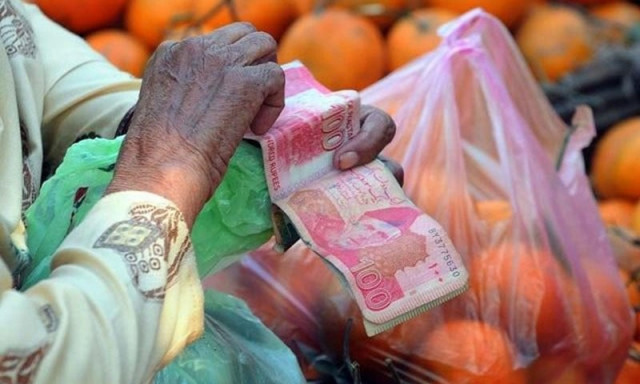Why stagflation vexes the economy
Financial globalisation, capitalist influence raise concerns

The current stagflation is greatly impacting the masses, with rising unemployment and a palpable decline in the performance of the large-scale manufacturing sector, which decelerated by around 10% from July to May 2023 in the outgoing fiscal year. The manufacturing sector is facing constraints in food supply, leading to an acceleration in food prices within the economy.
In the era of financial globalisation, agricultural prices are closely linked with the rupee-dollar parity. If the domestic price of a food item exceeds the international price, there will be an influx of that food item in the country, and vice versa. For instance, the government fixed the support price of wheat at Rs4000 per 40kg and procured the desired amount from farmers during April-May 2023. The market price of wheat hovered around the support price in the first week of June 2023. However, since then, international wheat prices have increased by around 20%, with analysts attributing this price hike to the Russian-Ukrainian conflict. This impact is strongly felt in the domestic market, resulting in the domestic wheat price rising to around Rs4600 per 40kg. The domestic and international financial capitalists benefit from these price differences by strategically parking their capital as required.
The case of sugar provides an instructive example. The international prices of sugar have been on an uptrend since April 2020, translating into a hike in the domestic price of sugar. The retail price of sugar increased from around Rs120 per kg in March 2023 to now hovering around Rs155 per kg due to the rising international price of sugar. The government allowed the export of a reasonable quantity of sugar in FY2023 and even imported a small quantity in the outgoing fiscal year, highlighting the presence of adhocism in our higher echelons of government and the influence of capitalists on policy administration to further their interests.
Financial capitalists are driving the current era of globalisation, characterised by an abrupt movement of capital in and out of the country. Multilateral institutions support this financial globalisation by removing blockages and bottlenecks in its way. The International Monetary Fund (IMF) has asked the government to remove import restrictions and allow the rupee to float freely vis-a-vis the dollar, while remaining wary of capital control.
The removal of these restrictions may lead to volatility in the movement of the rupee, driven by news from the financial press. Such abrupt movements create incentives for financial capitalists/investors to speculate in commodities, resulting in increased food prices in the domestic market, burdening lower-income people.
In a nutshell, there is a need for a mechanism at the global level to curb speculation in commodities. A coordinated effort among advanced capitalist countries, along with an international buffer stock scheme, is required to control unusual movements in essential commodities. Additionally, policymakers in Islamabad must consider domestic buffer stock options for essential commodities. Without such measures, stagflation will exacerbate the hardships faced by the lower strata of the population.
THE WRITER HAS WORKED AT SDSB, LAHORE UNIVERSITY OF MANAGEMENT SCIENCES (LUMS)
Published in The Express Tribune, July 31st, 2023.
Like Business on Facebook, follow @TribuneBiz on Twitter to stay informed and join in the conversation.


1733130350-0/Untitled-design-(76)1733130350-0-208x130.webp)
















COMMENTS
Comments are moderated and generally will be posted if they are on-topic and not abusive.
For more information, please see our Comments FAQ